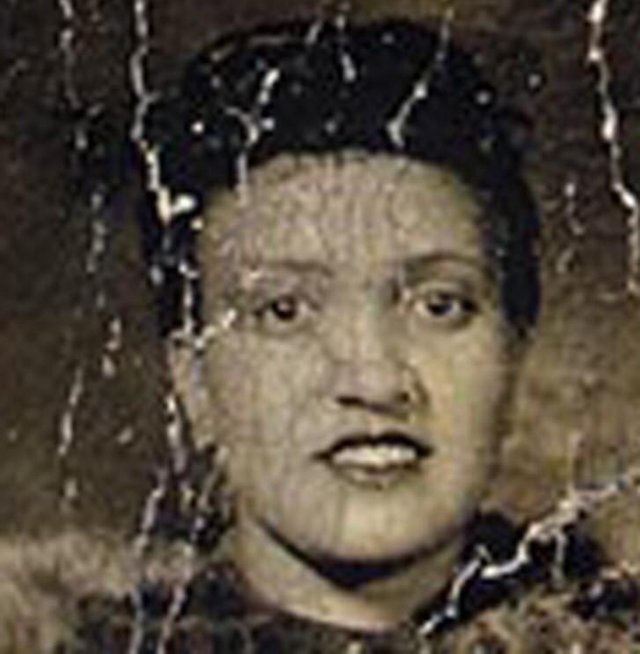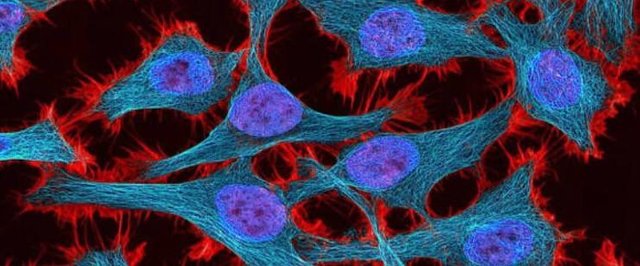
Henrietta Lacks was an African American women who went to the John Hopkins hospital after experiencing abnormal pain and bleeding in her abdomen. She was quickly diagnosed with cervical cancer. Henrietta received radiation treatment however died just 8months later on The 4th of October 1951 at the age of 31. During her treatment, before passing away, Doctors removed two cervical samples from Henrietta without her knowledge.
The samples were sent to a labarotory where Dr George Otto Gey noticed an unusual quality in the cells. The cells were more durable and not like any other they'd seen before. The cells were able to duplicate in labs and stay alive unlike most cells which survived only for a few days. This meant that her cell line was virtually immortal and could be tested multiple times for research. Dr Gey named the sample the HeLa strain.

The HeLa strain revolutionalized medical history as the cells helped spur numerous medical breakthroughs. The HeLa cells were used to develop the polio vaccine in 1955, due to this a mass interest in the cells developed. Researchers and scientists around the world aquired the HeLa cells to study disease and to test human sensitivity to substances and products. The medical breakthroughs helped by the HeLa cells include vaccines, cancer treatments and in vitro fertilization.
The Lacks family were kept in the dark and only learned about the HeLa cells in the 1970s when the family was contacted by scientists seeking blood samples and other genetic materials. The family have never been compensated whilst institutions such as pharmaceutical companies, authors and hospitals have made money through the use of the HeLa cells
The bestseller "The immortal life of Henrietta Lacks" written by Rebecca Skloot generated national attention.
The Hopkins officials then later stated that there were no established practice for informing or obtaining consent from cell or tissue donors when the cells were taken.
“Today, Johns Hopkins and other medical research centers maintain strict patient consent processes for tissue and cell donation,” the statement said. “It is now standard practice to have an Institutional Review Board examine every research study involving human participants before it is allowed to begin.”
Read here
When the family seeked legal advice in the past, they were told they had passed the "statute of limitations". The statute of limitations is a statute prescribing a period of limitation for the bringing of actions of certain kinds.
Thee family will file a lawsuit represented by an attorney named Francis Lanasa who states
he would use a “continuing tort” argument, alleging that Hopkins had continued to violate the “personal rights, privacy and body parts” of Henrietta Lacks over time.
Read here
The HeLa cells story has raised some ethical issues related to consent, privacy and compensation. Ethically speaking, is it right that Henrietta's cells continue to produce profits for every institution whist the family receives nothing?
Comment below, Would love to know what you think.
Sources [Henrietta Lacks's family wants compensation for cells ](https://www.washingtonpost.com/local/henrietta-lackss-family-wants-compensation-for-her-cells/2017/02/14/816481ba-f302-11e6-b9c9-e83fce42fb61_story.html) [Henrietta Lacks biography](https://www.biography.com/people/henrietta-lacks-21366671) [Henrietta Lacks cells taken for cancer research 62 years ago](http://www.dailymail.co.uk/news/article-2386617/Henrietta-Lacks-Cells-taken-cancer-research-62-years-ago-longer-free-use-grandchildrens-permission.html)
This post received a 1.2% upvote from @randowhale thanks to @orora! For more information, click here!
Downvoting a post can decrease pending rewards and make it less visible. Common reasons:
Submit
This is such an interesting story! It's amazing that a breakthrough so impactful could be kept a secret from the family. I agree that they deserve financial compensation, but also the recognition of their family legacy! What a sense of pride that would have given the family over generations to realize the medical advancements that their family had helped provide to countless families.
Downvoting a post can decrease pending rewards and make it less visible. Common reasons:
Submit
Yes it's only right that they are compensated, I mean the HeLa cells are still being used til this day.
Downvoting a post can decrease pending rewards and make it less visible. Common reasons:
Submit
I completely agree
Downvoting a post can decrease pending rewards and make it less visible. Common reasons:
Submit
This is amazing.
Downvoting a post can decrease pending rewards and make it less visible. Common reasons:
Submit
Congratulations @orora! You have completed some achievement on Steemit and have been rewarded with new badge(s) :
Click on any badge to view your own Board of Honor on SteemitBoard.
For more information about SteemitBoard, click here
If you no longer want to receive notifications, reply to this comment with the word
STOPDownvoting a post can decrease pending rewards and make it less visible. Common reasons:
Submit